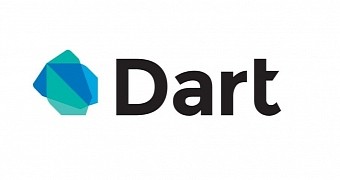Dart is an open-source Web programming language developed by Google that was unveiled at the GOTO conference in Denmark back in 2011.
Usually, non-game Android apps are normally written utilizing Java. However, a team inside Google is currently researching and experimenting with a new way of writing Android apps using the company’s in-house platform Dart, which does not use Java.
The group is using the Sky development language, which is based on Dart, in order to summon a new era for fast and ultra-responsive Android apps that are better integrated and provide a better user experience, as revealed by Ars Technica.
Android apps are bound to get faster
At the moment, the standard maximum frame rate for Android apps is set at 60 frames per second, although the majority of the apps we use daily don’t run at 60fps on a constant basis. However, soon things might turn around radically.
This means that, sometime in the future, Android developers will not be working with Java anymore and will utilize Dart instead. While this entails that devs will have to learn the secrets of an entirely new language, it appears Dart will bring some pretty cool advantages into the equation, to make their effort worth their while.
The biggest benefit is that developers could make apps that run at 120 frames per second. However, the report does explain that this standard isn't possible to display on the average 60GHz smartphone screens of today.
The team used Dart on Android in order to create a simple demo app that renders entire frames every 1.2 milliseconds, which is lower than the 8 milliseconds required for 120fps. So even super complicated apps should be able to fit within this limit.
How does Sky work?
How is Sky able to reach this standard of smoothness? As it turns out, the development language prioritizes the UI over other processes, so that means apps should stay smooth even when running in the background.
Sky runs on top of the Dart virtual machine, so apps developed using this particular language work on Android, but also on other operating systems that use a Dart VM.
And since Dart is a web app language, Android apps made with Sky will have most of their code stored on a web server, which means updating them will be a lot more easier. This is because no updating of code for each device will be required, as developers will only need to update the code on the server.
Naturally, it’s not all rainbows and butterflies. For example, Dart apps can’t function without a proper Internet connection. They are also slower to load initially because the handset will be taking most of the app’s data from the server.
However, these problems might be resolved if the team makes use of caching. It’s going to be a while until we see something palpable coming out from the Sky team, so don’t get too excited just yet. The group is still heavily iterating on Sky, so there is still a lot of work to be done.

 14 DAY TRIAL //
14 DAY TRIAL // 